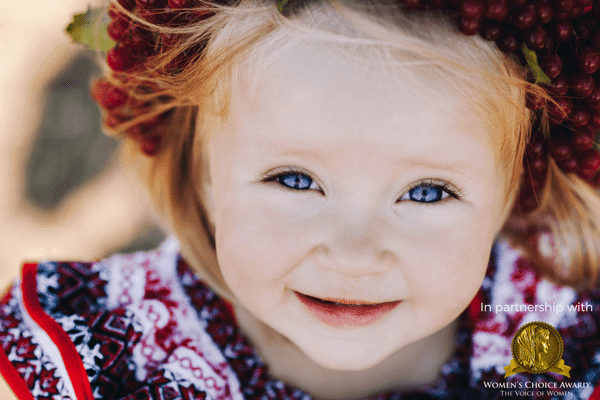
You see a little girl, all ringleted blond hair and blue-eyed, dressed up in a princess dress and tiny darling shoes. You say almost automatically, "Well hello you beautiful girl! Aren't you the cutest?"
And what's wrong with that? It'll pump up her self-esteem. It's the perfect ice breaker. Maybe that's true, and there is seriously nothing wrong with gushing about how darling little girls are, but what if there is?
Because whether we like it or not, girls are hearing the message that their looks are the priority. Take a look at these statistics:
-
A female's self-esteem peaks at 9-years-old (Girl Scouts of America)
-
42 percent of 1st, 2nd and 3rd graders want to be thinner (PBS)
-
81 percent of 10-year-olds are afraid of being fat (PBS)
-
96 percent of girls would change something about their appearance (Fox News)
-
72 percent of girls feel "tremendous pressure" to be beautiful (Girl Scouts of America)
-
Only 4 percent of girls worldwide believe they are beautiful (Girl Scouts of America)
So maybe we need to change the way we communicate with young girls about their appearance. When the first thing anyone says to her is about her looks, and when she is repeatedly exposed to society's dialogue about appearance, it's no wonder she believes her looks are a priority.
Even though you're one person, you can start to redefine the way young girls perceive beauty.
She needs to know her looks are not an indicator of her worth
You eat too many cookies, and feel like a failure. Your hair looks like greasy strings, and you don't have the confidence to speak up. We've all felt this way from time to time: like we are incapable of success or like we're unlovable, simply because we don't think we're beautiful.
But does bloat really make you less capable of success? Do unflattering locks make what you say less valuable? No. Your appearance is one aspect of you, and it does not affect the others.
A person's value is not attached to the fact that they were born with straight, white teeth or have a fast metabolism. It doesn't matter if you're stereotypically beautiful. It matters if you're kind, if you're honest, if you're courageous. Appearance is just one small piece of who you are.
What can you do: Care for your appearance, but stop obsessing about how you look (and teach young girls to do the same). Former leader of a young women's organization, Susan Tanner, gave this advice: "You must do everything you can to make your appearance pleasing, but the minute you walk out the door, forget yourself and start concentrating on others."
Other people do not have the authority to define a girl's beauty
Imagine the most beautiful woman in the world. Is she an actress or a model celebrated for her looks? It doesn't matter; someone thinks she's ugly. It doesn't even matter if she's won the "Most Beautiful Person in the World" award; someone disagrees. Someone thinks her thighs are too fat, her eyes are too far apart and her nose is too big.
It's impossible to reach a level of beauty where everyone thinks you're beautiful. And why would you try?
Every girl needs to learn not to be dependent on other people thinking she's beautiful to feel beautiful. She needs to learn to see the beauty in herself.
What you can do: Be cognizant of what you're saying when you talk about physical traits. Even positive comments or compliments can have negative impacts. Instead, teach her that no one but her should be allowed to evaluate her own beauty.
Also, change the conversation. Choose to talk about her interests, beliefs and the world instead of about how she or others look.
We need to redefine what it means to be beautiful
When you look in the mirror, do you see what your 3-year-old sees when she looks at your face? What she sees is someone beautiful: her mother.
When you scowl at your reflection because of the lines, the grays, the fat, you teach your daughter she's wrong: the things she thinks are beautiful, aren't. She'll learn a new definition of beautiful, a definition that teaches her she's imperfect.
Let her define beauty by legs that dance, moles that make her unique and a mind that is full.
At the end of the day, definitions of "beautiful" are as diverse as the world's cultures and constantly change with time. Don't build a definition of beauty on something so fluid. Build a definition that's solid.
What you can do: Be positive about your body. Love it for what it does for you. Teach girls their bodies are instruments, not ornaments.
So next time you see a girl in pigtails walking down the aisle of the grocery store, consider what you're telling her when you gush over what a "pretty girl" she is. Choose to look at her mind. Instead of teaching her that she looks amazing, help her know she is amazing.
You have the opportunity to make your voice heard: vote for the women you think are doing amazing things to solve issues affecting girls and women in the Women's Choice Awards.

